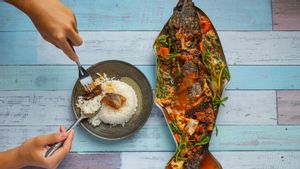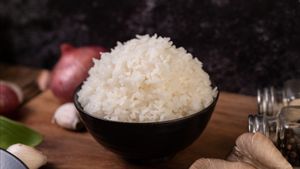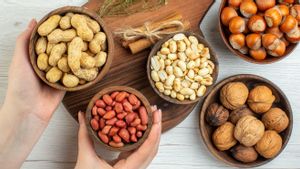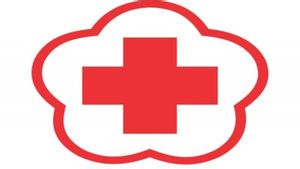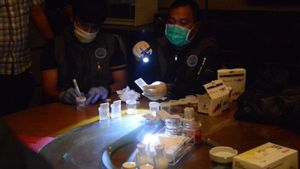YOGYAKARTA Metabolism is influenced by a number of carbohydrates that are eaten in a day. In addition to metabolism, in the weight loss program, it is also necessary to calculate the amount of carbohydrates consumed. This is called a low-carb diet that also needs to be balanced by eating enough protein and fat. To prevent a low-carb diet that is being undertaken from failing, avoid eating the following.
Ideally, a low-carb diet only consumes 100-150 grams per day. This amount is actually not definitively explained. But for sure, the amount of carbohydrates consumed in a day must be lower than the daily requirement in order to substitute the energy source of the body's fat pile. This is called a ketosis condition, where most people who do it only consume less than 50 grams of carbohydrates per day.
To achieve ketosis conditions, only vegetables and a little berries are needed. Well, mistakes that are often made when on a low-carb diet, do not count hidden carbos.
Protein is a macronutrient that is very important for consumption. This can increase the expectation of being full and increase the burning of fat over other micronutrients. Generally, consuming more protein will result in weight loss and improvement in body composition. However, low-carb diet actors who eat fat-free animal foods may consume too much protein.
To process amino acids from protein to glucose, the body needs enough carbohydrates. If you eat too much protein food and too little carbo, it will prevent the body from reaching full doses. Launching Healthline, Tuesday, April 16, low-carb diets are formulated to be high in fat and moderate protein.
Many people get calories from carbohydrate foods from sugar and seeds. If you lose this energy source, you have to engage in other energy sources. But some people believe reducing fats with a low-carb diet will make your diet healthier. This is a big mistake.
If you don't eat carbohydrates, you should add fat as compensation. Failure to do this can lead to inadequate hunger and nutrition. The healthier, avoid trans fats and choose healthy fats, such as single unsaturated fats and omega-3. Fat intake of about 70% of the total calories may be a good choice for some people who undergo a low-carb or ketogenic diet.
One of the main mechanisms behind a low-carb diet is a decrease in insulin levels. On a low-carb diet, your insulin levels drop. Your body starts removing excess sodium along with water. This is why people often experience excess bloating for a few days after eating low-carbs.
Sodium, is an important electrolyte. Low sodium levels can be a problem if the kidneys throw away too much sodium. This is one of the reasons people experience low-carb diet side effects, such as mild headache, fatigue, headaches, leg cramps, and even constipation.
The best way to avoid this problem is to add more sodium into your food. You can do this by giving salt to food. But if that's not enough, try drinking a cup of broth every day. To balance, make sure sodium is not more than 2,300 mg per day.
SEE ALSO:
The body is designed to burn carbohydrates specially. If carbohydrates are available, the body will use them for energy. If you consume fewer carbohydrates drastically, the body will switch to burning fat stored from food. For this second process, the body needs adaptation for several days. For several days the body adapts, it may feel unwell. But don't give up and be tempted to stop dieting.
The body takes 3-4 days to adjust to a new diet. Full adaptation may take several weeks. Always record any evaluation you feel when you start a low-carb diet. Ideally, consult a dietist or health expert before and during.
The English, Chinese, Japanese, Arabic, and French versions are automatically generated by the AI. So there may still be inaccuracies in translating, please always see Indonesian as our main language. (system supported by DigitalSiber.id)




